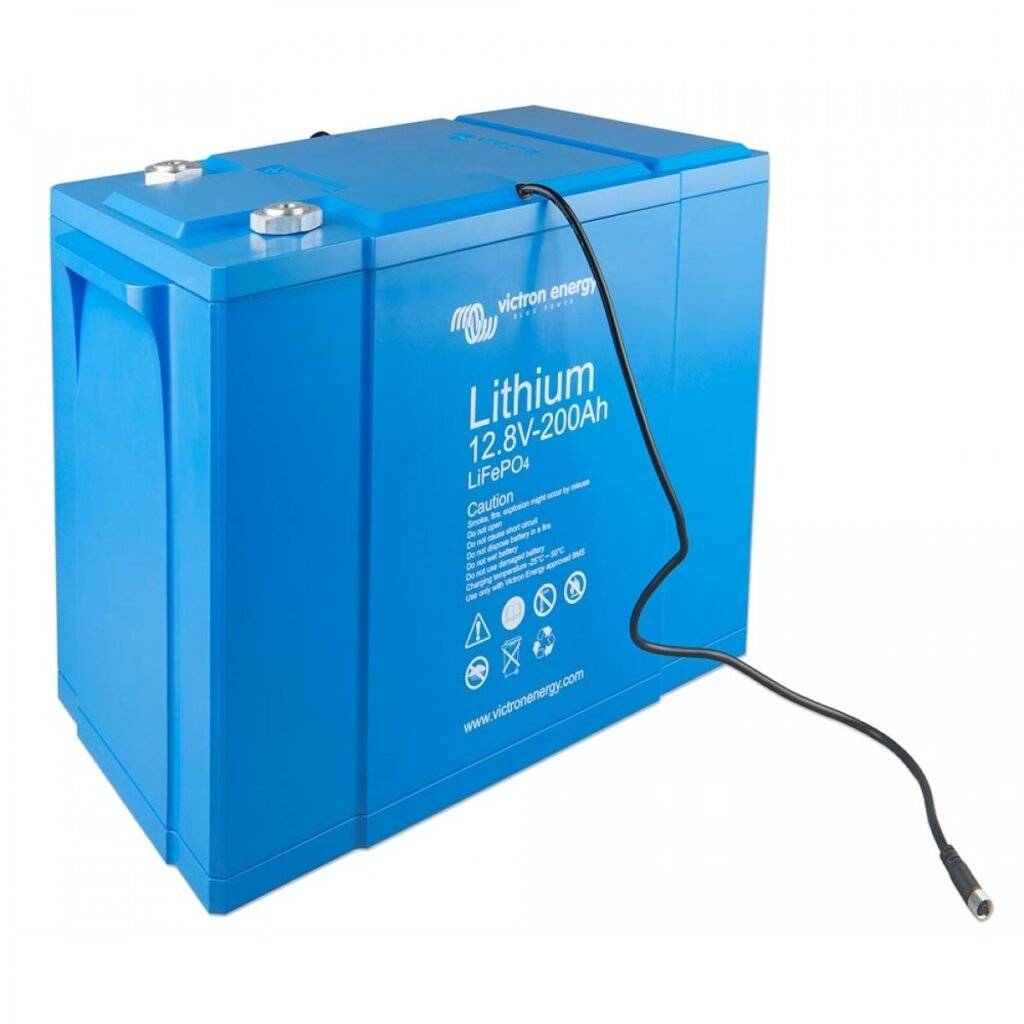
A Lithium Phosphate (LiFePO4) battery is a type of rechargeable lithium-ion battery that uses lithium iron phosphate as the cathode material. LiFePO4 batteries have a number of advantages over other types of lithium-ion batteries, including higher thermal stability, longer lifetimes, and better performance at high temperatures.
One of the main benefits of LiFePO4 batteries is their high thermal stability. Because the cathode material is made of lithium iron phosphate, the battery is less likely to overheat or catch fire compared to other lithium-ion batteries. Additionally, LiFePO4 batteries have a relatively low rate of self-discharge, which means they can hold their charge for longer periods of time.
LiFePO4 batteries also have longer lifetimes than other types of lithium-ion batteries. This is because they have a higher number of charge-discharge cycles, which means they can be charged and discharged more times before their performance begins to degrade.
Additionally, LiFePO4 batteries have a relatively flat discharge curve, which means their voltage remains relatively consistent throughout their discharge cycle. This is in contrast to other types of lithium-ion batteries, which can experience a significant drop in voltage as they are discharged.
Another advantage of LiFePO4 batteries is their performance at high temperatures. Because the cathode material is made of lithium iron phosphate, the battery is less sensitive to high temperatures than other types of lithium-ion batteries. This makes LiFePO4 batteries well-suited for use in applications that are exposed to high temperatures, such as electric vehicles and solar energy storage systems.
However, LiFePO4 batteries also have some limitations. They have lower energy density compared to other types of lithium-ion batteries, which means they are larger and heavier for the same amount of energy storage capacity. Additionally, they have a higher cost per kWh compared to other types of lithium-ion batteries.
Overall, LiFePO4 batteries are a type of rechargeable lithium-ion battery that offer a number of advantages over other types of lithium-ion batteries, including higher thermal stability, longer lifetimes, and better performance at high temperatures. They are well-suited for use in applications that are exposed to high temperatures, such as electric vehicles and solar energy storage systems, but their lower energy density and higher cost per kWh compared to other types of lithium-ion batteries are important factors to consider.
Pros:
- High energy density: Lithium Phosphate batteries have a higher energy density compared to other types of lithium-ion batteries, which means they can store more energy in a smaller size.
- Safe and stable: Lithium Phosphate batteries are known for their safety and stability, making them suitable for use in electric vehicles and other applications where safety is a concern.
- Long cycle life: Lithium Phosphate batteries have a long cycle life, meaning they can be charged and discharged many times before they need to be replaced.
- Wide temperature range: Lithium Phosphate batteries can operate in a wide temperature range, making them suitable for use in different environments.
Cons:
- Lower voltage: The voltage of Lithium Phosphate batteries is lower compared to other types of lithium-ion batteries, which means they may not be as efficient in some applications.
- Higher cost: Lithium Phosphate batteries are typically more expensive than other types of lithium-ion batteries, making them less cost-effective for some applications.
- Limited availability: Lithium Phosphate batteries are not as widely available as other types of lithium-ion batteries, which can make them harder to find or purchase.
- Heavier weight: Lithium Phosphate batteries are typically heavier than other types of lithium-ion batteries, which can make them less ideal for use in portable devices or other lightweight applications.
